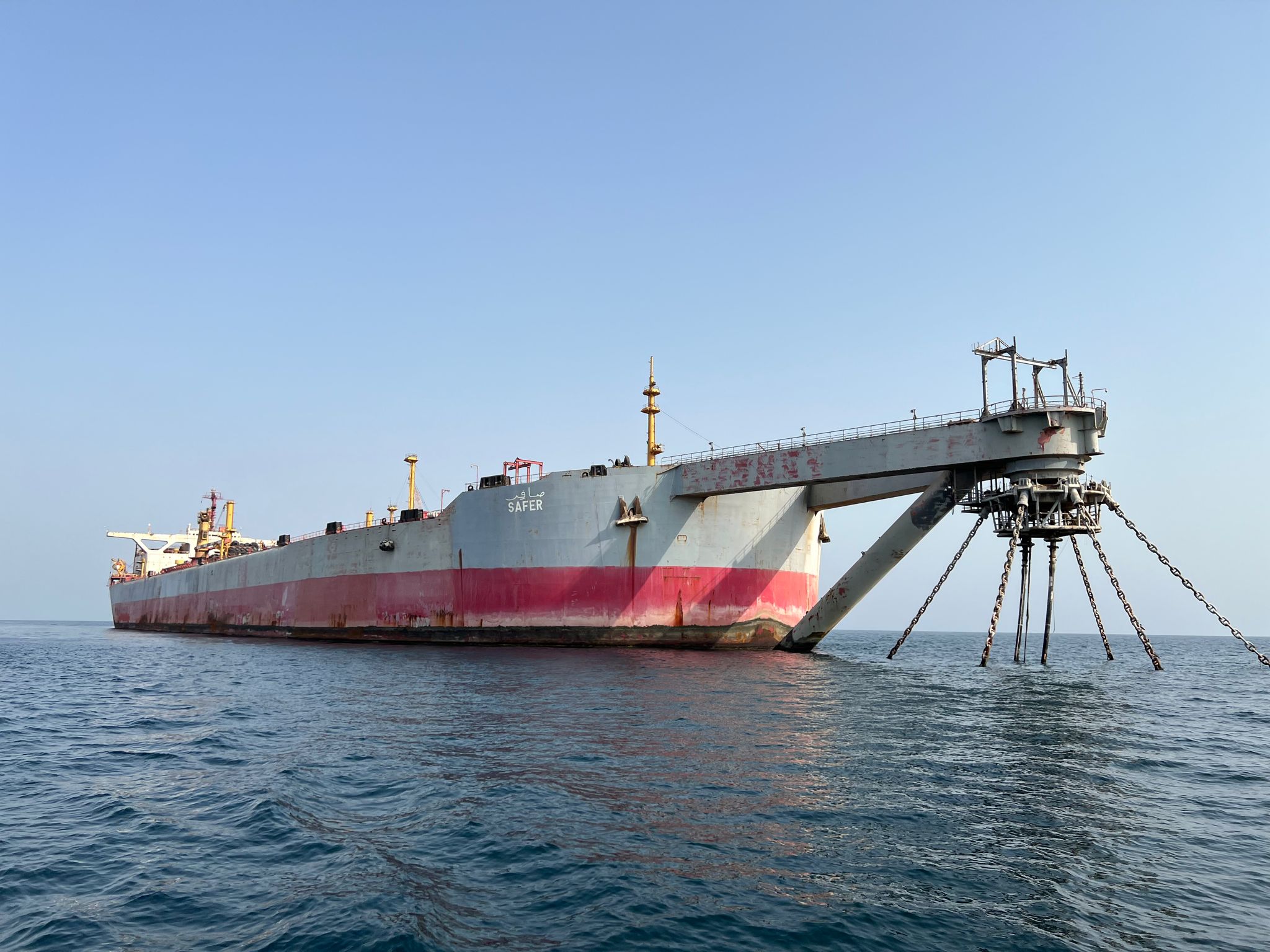UN-led project to prevent oil spill off Yemen’s Red Sea began
The oil aboard the Safer is being pumped into the replacement vessel Yemen (formerly Nautica) in a ship-to-ship transfer that is expected to take 19 days to complete.

The UN-led project to prevent a massive oil spill from the FSO Safer supertanker off Yemen’s Red Sea coast began today with the removal of more than 1 million barrels of oil from the decaying vessel.
The Safer has been at risk of breaking up or exploding for years. A major spill from the vessel would result in an environmental and humanitarian catastrophe.
The oil aboard the Safer is being pumped into the replacement vessel Yemen (formerly Nautica) in a ship-to-ship transfer that is expected to take 19 days to complete. After its arrival at the site on 30 May, the leading marine salvage company SMIT, a subsidiary of Boskalis, has stabilized the 47-year-old Safer. The UN Development Programme (UNDP), which contracted SMIT, is implementing the operation to remove the oil.
UN Secretary-General António Guterres said: “In the absence of anyone else willing or able to perform this task, the United Nations stepped up and assumed the risk to conduct this very delicate operation. The ship-to-ship transfer of oil which has started today is the critical next step in avoiding an environmental and humanitarian catastrophe on a colossal scale.”
UNDP Administrator Achim Steiner said: “With every gallon of oil now being pumped off the Safer the threat of a potential spill that has loomed over the people of Yemen and indeed the countries and economies depending on the shared Red Sea ecosystem, recedes. The challenges on this project have been huge but the response by so many who have made this rescue operation possible has been equally huge. And it is a reminder of what the United Nations can achieve through its convening power and its capacity to coordinate a complex operation.”
Speaking from aboard the salvage vessel Ndeavor, the UN Resident and Humanitarian Coordinator for Yemen, David Gressly, said: “The transfer of the oil to the Yemen will prevent the worst-case scenario of a catastrophic spill in the Red Sea, but it is not the end of the operation. The installation of a CALM buoy to which the replacement vessel will be safely tethered is the next crucial step. I thank donors, private companies and the general public for providing the funds that have brought us to this milestone.”
Mr Gressly has led UN system-wide efforts on the Safer since September 2021.









